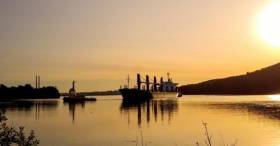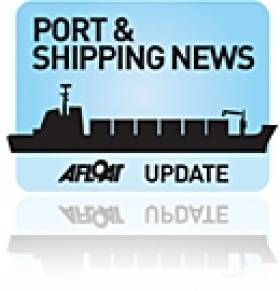Displaying items by tag: corporate plan
Port of Waterford Focus On Climate Change In New Corporate Plan
Plans by the Port of Waterford in responding actively to climate change and emerging economic opportunities and challenges are among the key themes of the latest version of the port's corporate plan.
Along with commercial development, WatefordLive reports, also on the infrastructure, people and systems and environmental sustainability is one of five topics prioritised in the plan.
Describing climate change as “an enormous threat to the global environment with very significant implications for our economies and day-to-day lives,” the plan says it is incumbent on the Port to play a proactive role in reducing carbon emissions from transport.
In the plan, the Port commits to minimising their environmental impact and reducing their direct and indirect carbon footprint. It will also continue to support Ireland’s renewable energy sector and especially enable further investment in wind energy.
More here on this story.
Belfast Invests in Port's Future
Belfast Harbour's new corporate plan details investments worth £92m (€103m) in improving the port and supporting renewable energy.
Handy Shpping Guide reports that the single biggest investment in the three-year-plan is a £40m (€44.7m) scheme for a logistics terminal to support offshore wind farms in the Irish Sea.
While the port acknowledges that the economic downturn means only marginal growth is forecast for tonnages through the Port of Belfast, it says "significant opportunities" exist in diversitying into other sectors such as the 'green economy'.
Belfast Harbour commercial director Joe O’Neill says the corporate plan also "sets the framework" for future development and expansion of the port over the next 20 years.

























































